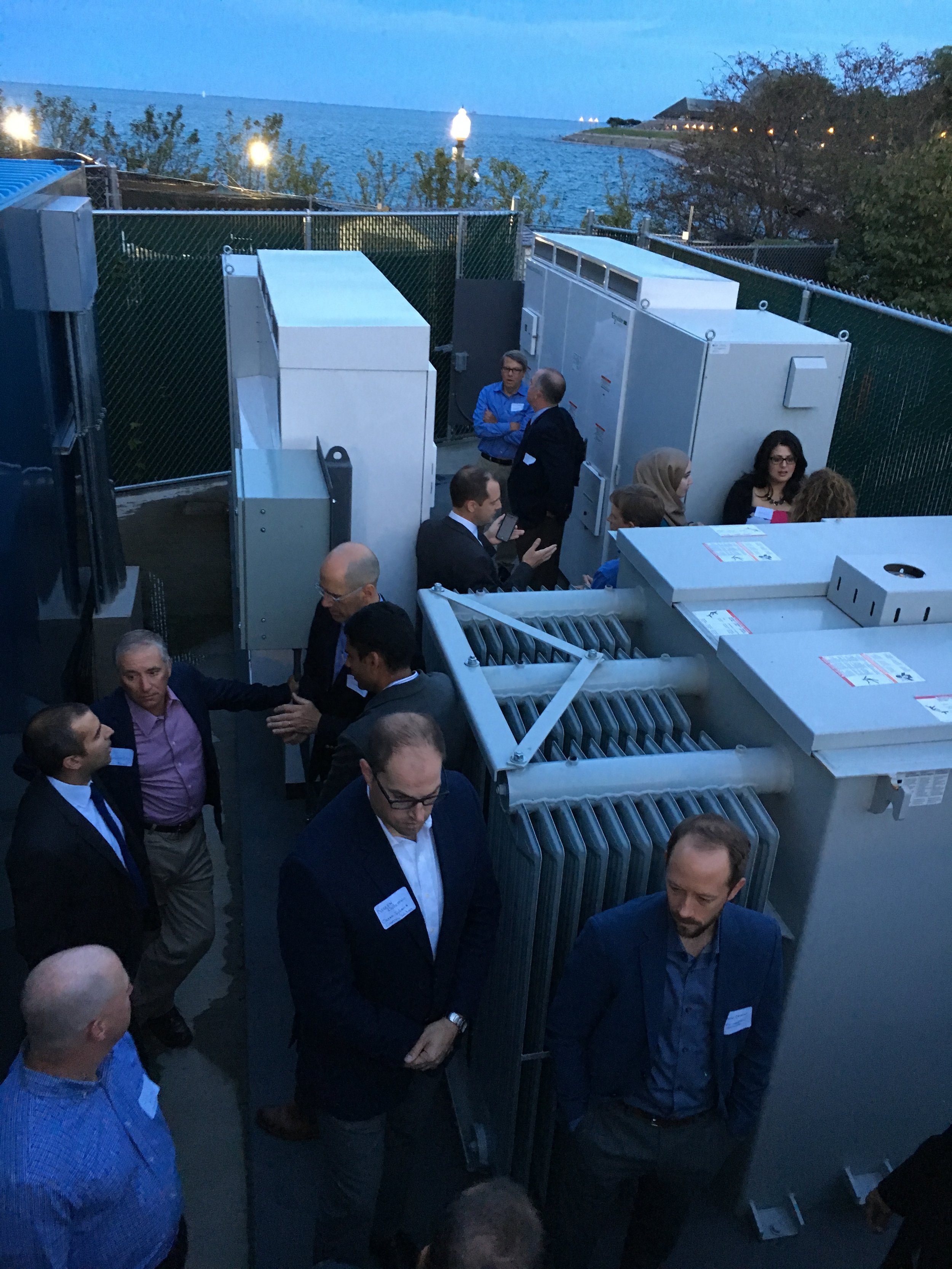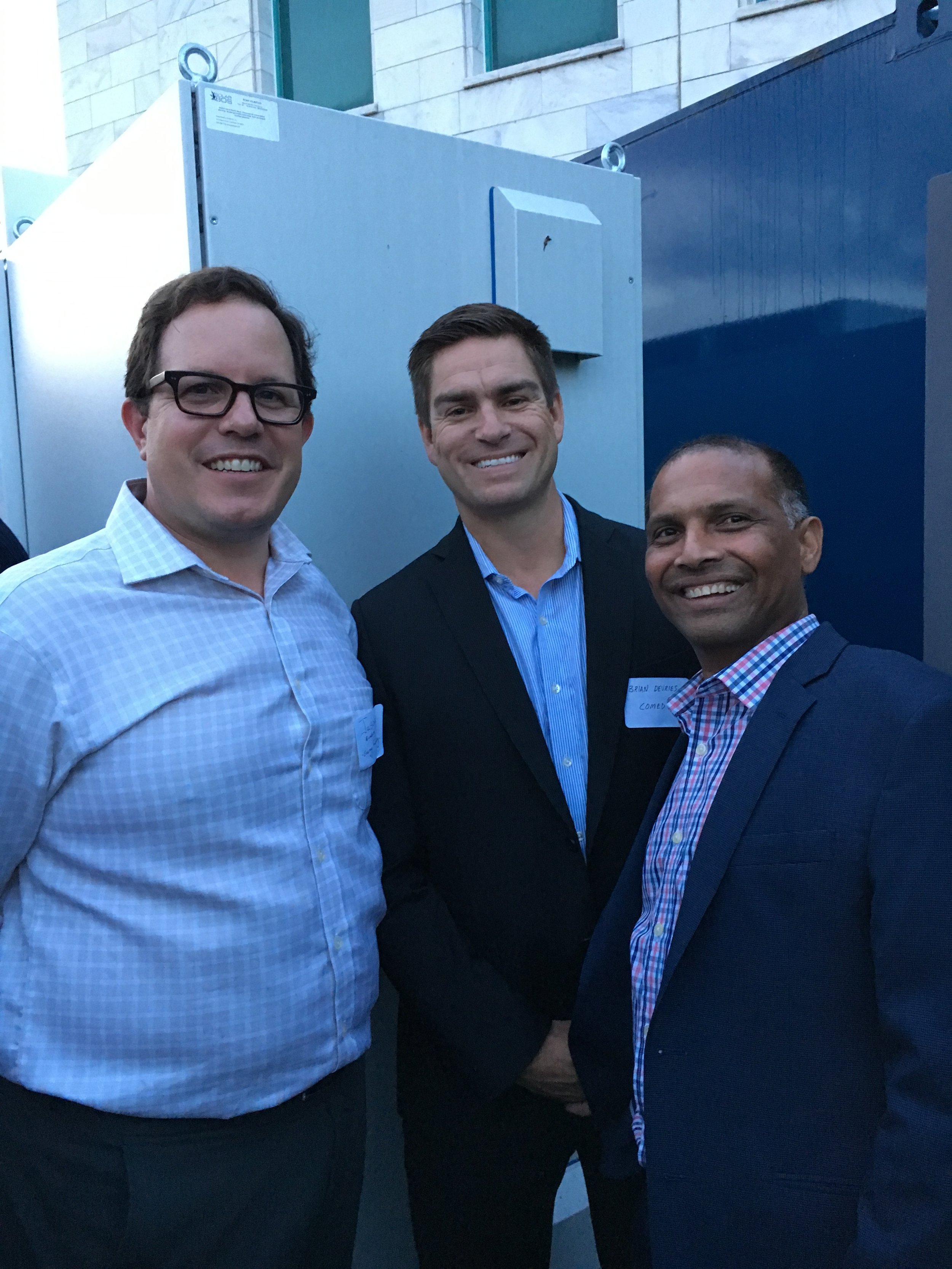-Brooke Ousterhout, Fellow
Technology, Buildings and Distributed Energy Optimization fueled the conversation at the most recent Chicago Advanced Energy Stakeholders Breakfast on September 22, offering an incredible line-up of influential industry and political leaders to address the impact technology has on building energy use. Steve Humes’ highly anticipated opening address questioned how the upcoming elections will have a bearing on energy decisions.
Chris Wheat, Chief of Sustainability - City of Chicago
Chris Wheat, Chicago’s Chief Sustainability Officer, described the City of Chicago’s dedication to energy. Mr. Wheat pointed out that 71% of Chicago’s carbon emissions come from building energy use and Chicago is working on programs like Retrofit Chicago and taking an aggressive stance on street lights by updating over 280,000 with LED lights in the next few years.
Hopefully with these initiatives and others, Chicago can hit its target of 20% electricity usage reduction in the next 5 years. Mr. Wheat also alluded to a potential distributed energy generation policy which we can all look out for in the near future.
The night prior to the breakfast, the Shedd Aquarium hosted CAE for dinner and Bob Wengel, Vice President of Facilities, gave a tour of the 1 MW battery storage facility installed this past summer in partnership with Schneider Electric. “The Shedd is really an incredible example to show what can be done around Chicago,” says Chris Wheat.







For more information about the project, visit the Shedd's website or a recent article from Midwest Energy News.
Koben Calhoun, Manager at Rocky Mountain Institute, Matthew Lynch, Co-Founder and Chief Product Officer at Bractlet, Ryan Tinus, Director at Tishman Speyer, and Rainer vor dem Esche, Managing Director at Stornetic joined Bob Wengel as discussion leaders for the Stakeholder Breakfast the next day which focused on Technology and Distributed System Optimization.
Matthew Lynch described some of the challenges with building energy data. While building Automation Systems collect data, they do not necessarily tell you why a building is behaving in the way it is. Technologies like Bractlet help collect data, provide predictive simulations, and demonstrate sustained savings. Mr. Lynch also points out how the culture of consumers is changing; people are asking their electricity providers “Are you being efficient?”
Mark your calendar for the next Chicago Advanced Energy Stakeholder Series: Energy, Mobility & Transportation 11/30 - 12/1.
Space is limited. Request an invitation








